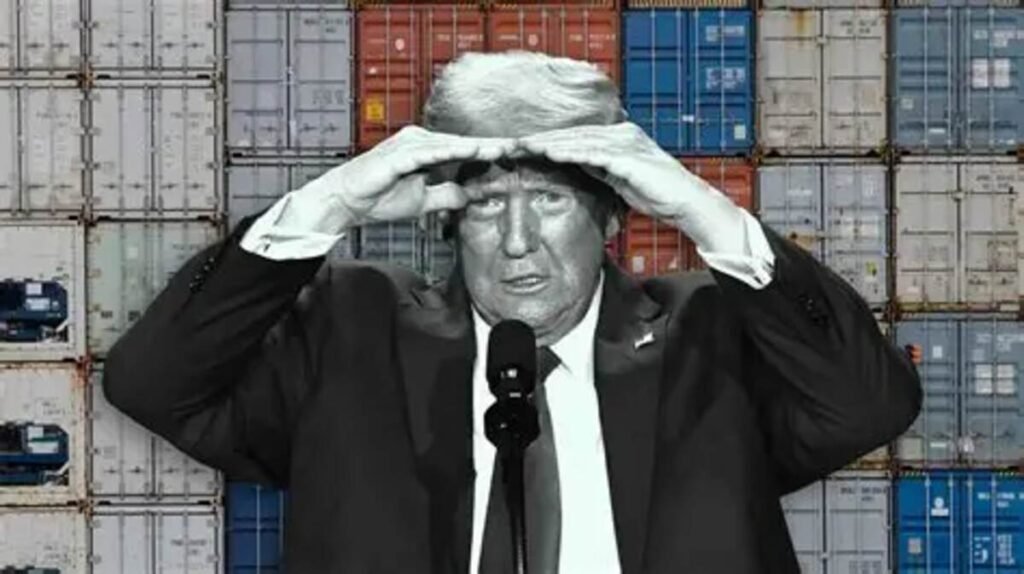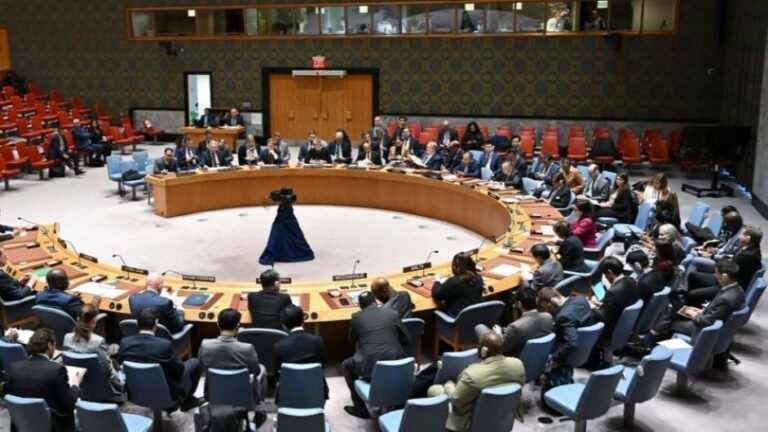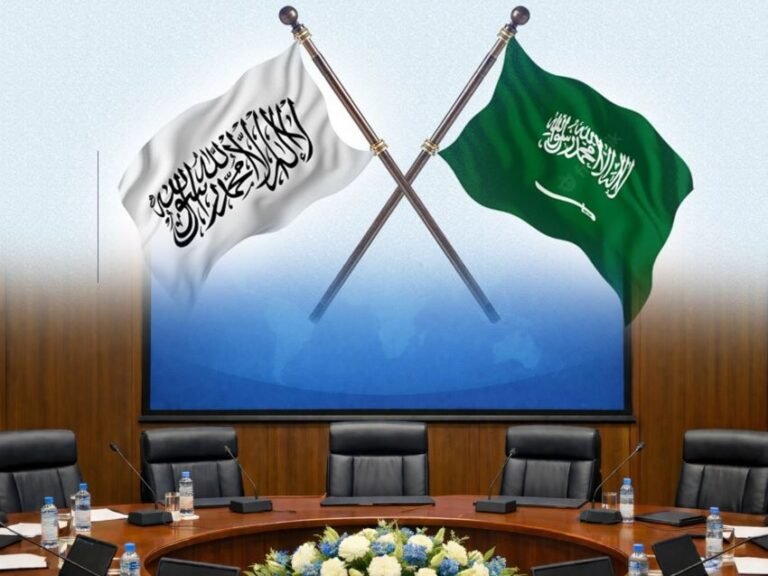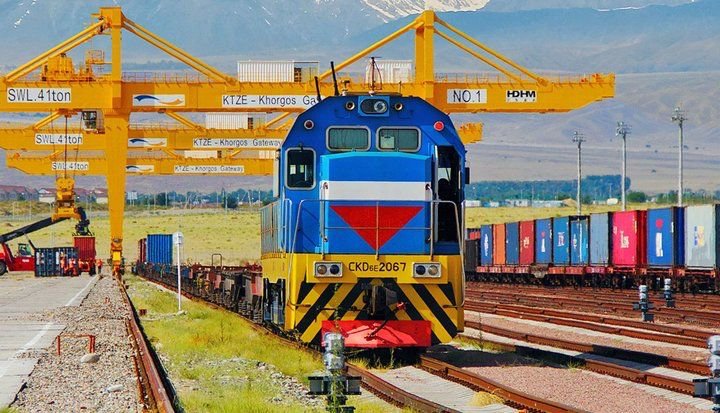US President Donald Trump has extended the pause of his new episode of reciprocal tariffs to August 1, on Monday.
In the meantime, he has been sending tariff letters to the presidents of these countries, announcing that their countries would be subjected to these new reciprocal tariffs if they fail to reach a new trade agreement with the United States by then.
The trade war initiated by Trump with several countries around the world has been upending the global economy and reshaping countries’ trade relations with one another.
Here’s how Trump’s trade war is overturning the global economy and reshaping trade relations.
The Genesis of Trump’s Trade War
The recent phase of Trump’s trade war is, in fact, part of his previous administration’s policies, driven by the idea that other nations engage in unfair trade practices with the United States and that the tariffs can protect the American economy and jobs.
The second Trump administration that began in January this year saw a return of these trade policies.
In April 2025, a new wave of tariffs was introduced that included a 10% baseline tariff on all goods imported by the United States, along with the reciprocal levies that reached up to 50% on some countries that the current US administration considered, had unfair trade policies with the United States.
Although initially some of these tariffs were paused for negotiations, the underlying strategy of aggressive tariff imposition remains firmly in place.
Which Countries Have Been Hit with New Tariffs?
On Monday, President Trump announced tariffs on 14 countries, to which he sent tariff letters.
These countries will face tariffs from August 1, if they fail to negotiate their trade policies with the United States by that time.
The new tariffs have been announced on the following countries:
- Japan: 25%
- South Korea: 25%
- South Africa: 30%
- Kazakhstan: 25%
- Laos: 40%
- Malaysia: 25%
- Myanmar: 40%
- Tunisia: 25%
- Bosnia and Herzegovina: 30%
- Indonesia: 32%
- Bangladesh: 35%
- Serbia: 35%
- Cambodia: 36%
- Thailand: 36%
What Do White House Letters Say?
The letters that the White House has sent to the leaders of these 14 countries point out the trade imbalance between the United States and these countries.
President Trump also highlighted that those countries that decide to move their production units to the United States would be exempted from tariffs.
On the other hand, he also warned these countries that if they try to impose retaliatory tariffs on the United States in response to these tariffs, then whatever number these countries choose to raise them by, will be added onto the percentage that the US is charging.
Trump ended all of his letters with a statement that some might consider a warning, while others call it merely a sarcasm: “These Tariffs may be modified, upward or downward, depending on our relationship with your Country. You will never be disappointed with The United States of America.”
How Trump’s Tariffs Are Impacting the Global Economy?
Following are the impacts of Trump’s tariffs on global trade and economy:
Supply Chain Disruption and Diversification
Tariffs both directly and indirectly increase the cost of imported goods, affecting businesses, consumers, and overall economic activity.
The most common impact is the rise in consumer prices, which increase because some portion of the additional cost is typically passed onto the consumers. Additionally, some companies that rely on the raw materials from the tariffed states also face higher input costs, which then increase the prices of goods that are even being finished inside the United States.
Re-routing Global Supply Chains
To avoid additional costs imposed due to the higher tariffs, some multinational corporations are compelled to re-evaluate and re-route their global supply chains and find alternative suppliers in the “non-tariffed” states. Some companies also decide to onshore their production back to the US soil, which might require additional investments and logistical complexities.
Market Uncertainty
One of the biggest drawbacks of the surprised tariff announcements is that they create a state of limbo for businesses, making it challenging for them to recalibrate their costs, plan investments, and maintain stable operations.
Stock Market Volatility and Investor Jitters
Another major impact is the unpredictable stock market reactions in response to the tariff announcements. After April 2025 reciprocal tariffs, the stock markets around the world saw a major decline including the FTSE 100 and other European markets.
Similarly, the stock markets didn’t respond well after the Monday announcement, with the S&P 500 falling by 0.8%.
In the New York Stock Exchange, the decliners had outnumbered the gainers by 4-to-1. Shares of some prominent companies also dropped including Tesla, which had tumbled to 6.8%, the biggest drop among the S&P 500 stocks.
Similarly, Apple’s stocks dropped to 1.7%, and JPMorgan Chase had dropped by 1.4%. This uncertainty makes the investors adopt a “wait and see” approach, while they refrain from further direct and indirect investments.
Reduced Purchasing Power
Economists around the world agree that when businesses face high import costs, they pass it on to the consumers in the form of an increase in the prices of goods, thereby reducing consumer’s purchasing power, and eventually slowing the demand for the products.
While the Trump administration has said time and time again that these tariffs are meant to protect America’s domestic industries and balance out the trade deficit with other countries, economists argue that the tariffs do more harm than good for the US citizens, increasing the input cost for the American manufacturers, and thereby burdening the consumers.
Similarly, the uncertainty resulting from these tariffs also affects the global markets and disrupts the supply chains, forcing countries and businesses to adapt to a highly uncertain and protectionist environment.
Javaria Khalid is a writer and researcher, who specializes in Pakistan's Foreign Policy Analysis, transatlantic geopolitics, and Pakistan’s relations with the European countries and the EU. She can be reached at javariakhalid011@outlook.com
















